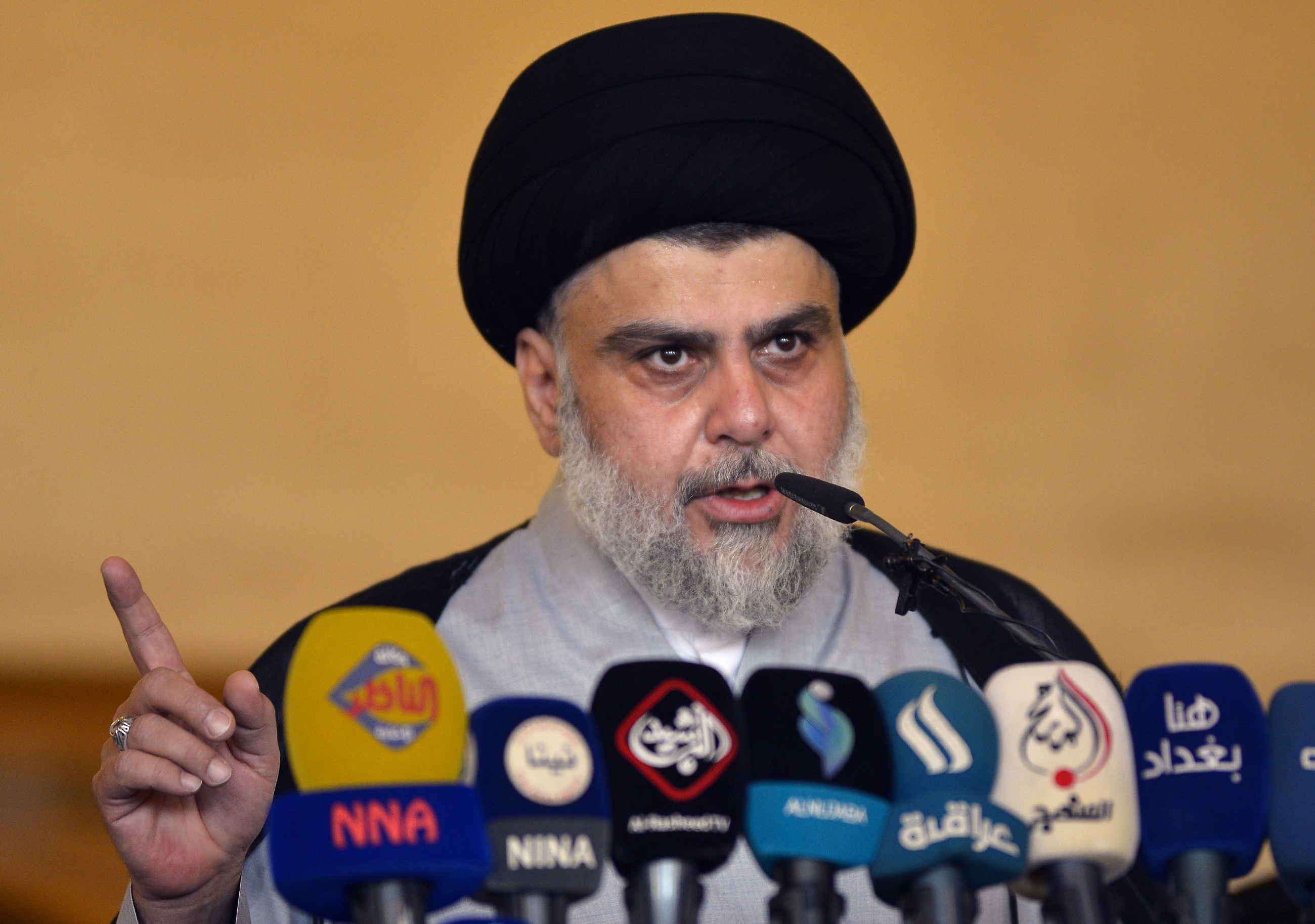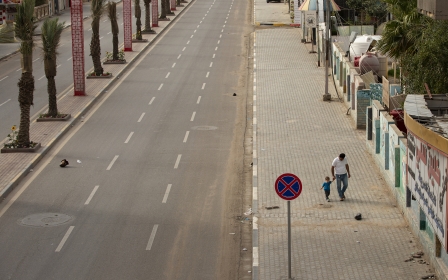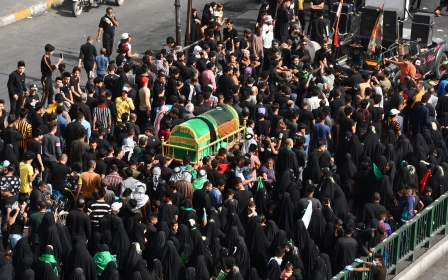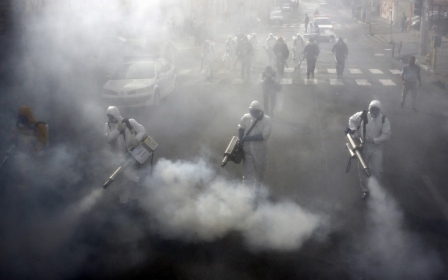Coronavirus: Iraqis criticise Muqtada al-Sadr for same-sex marriage claims

Shia cleric Muqtada al-Sadr has been ridiculed for his suggestion that the coronavirus pandemic came about because of the legalisation of same-sex marriage.
Writing on his Twitter account on Saturday, Sadr warned that the global outbreak - which has so far killed more than 35,000 people worldwide - would not subside unless governments repealed laws legalising same-sex marriages.
"One of the most serious things that caused this epidemic to spread is legalisation (same-sex marriage)," he wrote. "Hence, I call on all governments to repeal this law immediately and without delay."
Criticism of cleric
The tweet by Sadr, who has a huge following in Iraq, received more than 10,000 likes - but there were also around 6,000 replies heavily criticising his comments.
Stay informed with MEE's newsletters
Sign up to get the latest alerts, insights and analysis, starting with Turkey Unpacked
Translation: "I am an Iraqi as well and I have the right to life and marriage like everyone else"
"Someone take the phone from his hands," tweeted activist Abbas al-Wadi.
Aya Mansour, editor of Iraq Media Network, said coronavirus was "not as dangerous as your statements."
"One of the most dangerous things that will cause this epidemic to spread is your tweets and your herd," warned Ahmed Fawzi, an actor and researcher with the Albasheer Show, referring to his Sadr's followers' decision to keep congregating after the crisis was announced.
And Iraq activist and photographer Ali Dab Dab simply tweeted: "Source?"
Others pointed out that none of the countries worst affected by the illness, such as China, Italy and neighbouring Iran, have yet to fully legalise same-sex marriage (China does have limited recognition, while Iran and Italy have civil unions).
Martin Huth, the EU's ambassador to Iraq, did not directly respond to the comments in Sadr's statement, but instead tweeted a graphic on hygiene advice.
Translation: "Stay at home. An ounce of prevention is worth more than a pound of cure."
Attacks on LGBT community
Although homosexuality is not illegal in Iraq, it is heavily taboo. Members of the LGBT community have repeatedly been attacked and murdered in the past. Human rights organisations have documented LGBT abuses by militias, including the Mahdi Army, Sadr's former military arm.
Human Rights Watch found that "a wide-reaching campaign of extrajudicial executions, kidnappings and torture" in early 2009 had started in Baghdad's Sadr City, a neighbourhood which is named after the cleric's father and where he enjoys massive support.
'Making such ignorant statements will not only endanger LGBT+ people's lives, but will also put the lives of all Iraqis at risk'
- IraQueer
In 2016, Sadr said that although he was opposed to homosexuality, he was also opposed to violence being meted out against gay people and cautioned his followers against attacks.
In a statement on Sunday, the Iraqi LGBT rights group IraQueer condemned Sadr's coronavirus comments, accusing him of "weaponising" the fears and anxieties of Iraqis.
"Making such ignorant statements will not only endanger LGBT+ people's lives, but will also put the lives of all Iraqis at risk," the group said in the statement.
"The coronavirus is a pandemic that must be dealt with seriously and medically, and Muqtada al-Sadr's tweet will only distract us from what is really important, which is to save Iraqi lives."
Covid-19 in Iraq
The country has confirmed more than 500 cases of Covid-19 and 42 deaths, but the real figure is likely much higher, as few of the country's 40m population have been tested.
A countrywide lockdown has been declared until 11 April, with citizens urged to remain at home and adopt rigorous hygiene routines to prevent the spread of the virus.
This article is available in French on Middle East Eye French edition.
Middle East Eye delivers independent and unrivalled coverage and analysis of the Middle East, North Africa and beyond. To learn more about republishing this content and the associated fees, please fill out this form. More about MEE can be found here.




